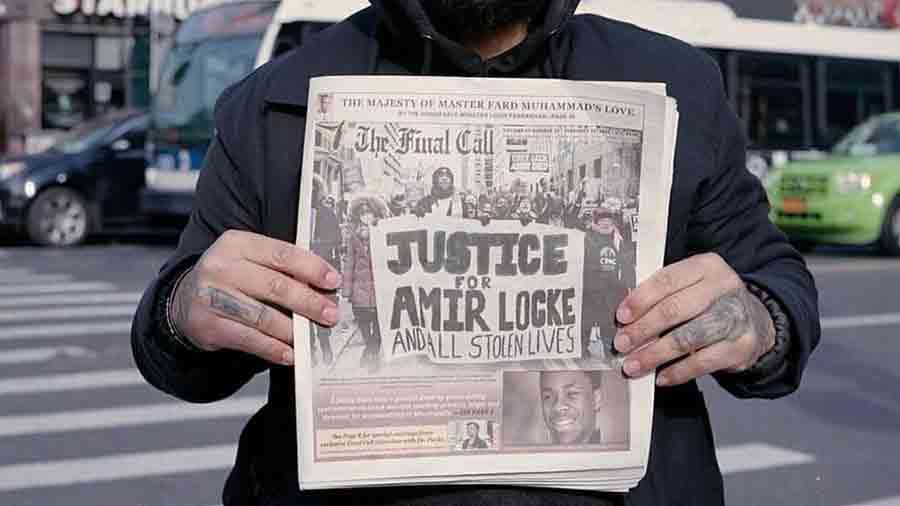In what could trigger protests afresh elsewhere in the US and in Minnesota’s most populous city, which continues to simmer over the police killings of George Floyd in 2020 and Daunte Wright last year, the decision by the prosecutors was attributed to a police body camera video that showed Locke pointing a gun at Hanneman, justifying the fficer’s use of lethal force.
Locke, who was on a couch in his cousin’s Bolero Flats apartment when authorities entered it without knocking for a probe into a homicide in the neighbouring city of St Paul, was neither a suspect in the crime nor named in the warrant.
His cousin, Mekhi Camden Speed, was named and has been charged with two counts of second-degree murder. Attorney-general Keith Ellison and Hennepin county attorney Michael Freeman said there was insufficient evidence to prove beyond a reasonable doubt that Hanneman, 34, violated the state’s statute governing when police can use deadly force.
“It would be unethical for us to file charges in a case in which we know that we will not be able to prevail because the law does not support the charges,” said Ellison. Locke’s family has been arguing that the footage suggests he was startled awake, after which he reached for the gun he was licensed to carry.
The victim was an aspiring musician, days away from moving to Dallas to live near his mother and attempting to build a career as a hip-hop artiste.
Locke’s mother, Karen Wells, said she was disgusted.
“Every time you (Hanneman) take a step, we’re going to be right behind you. This is not over. You may have been found not guilty, but in the eyes of me, being the mother who I am, you are guilty,”said Wells at a news conference in New York, alongside civil rights activist Al Sharpton, who said the family will demand that the US justice department review the case.
“Continue to have your restless nights, because I know you do. You were probably restless before they decided to not charge you today, but you’re going to continue to be restless, because the spirit of my baby is going to haunt you for the rest of your life,” she added.
“I am not disappointed, I am disgusted... with the city of Minneapolis.” Locke’s death took place while three former police personnel from Minneapolis stood trial in federal court in St Paul over Floyd’s killing.
The February incident renewed protests, part of the wider Black Lives Matter movement, and prompted reexamination of no-knock search warrants. A no-knock warrant is one issued by a judge, in most US states, which allows law enforcement to enter a property without immediate prior notification of the residents.
In their applications for such warrants, authorities usually claim a no-knock warrant is necessary to protect the public and the police as they look for guns, drugs and clothing worn by suspects in a violent killing. Critics argue that no-knock warrants often lead to use of lethal force by police and the deaths of innocent people.
Ellison and Freeman said they spoke to Locke’s parents before announcing they wouldn’t file charges.
“They, like us, believe that if a no-knock warrant hadn’t been used Amir Locke might well be here today,” said Freeman, while Ellison urged residents pushing for police reform and greater accountability not to relent.
Minneapolis mayor Jacob Frey issued a new policy this week, requiring police to knock and announce their presence, and then wait, before entering a building. According to a police statement, Hanneman – hired in 2015 -- returned to active duty on February 28, but was no longer on a Swat team.
“I was convinced that the individual was going to fire their handgun and that I would suffer great bodily harm or death,” he had told investigators.











